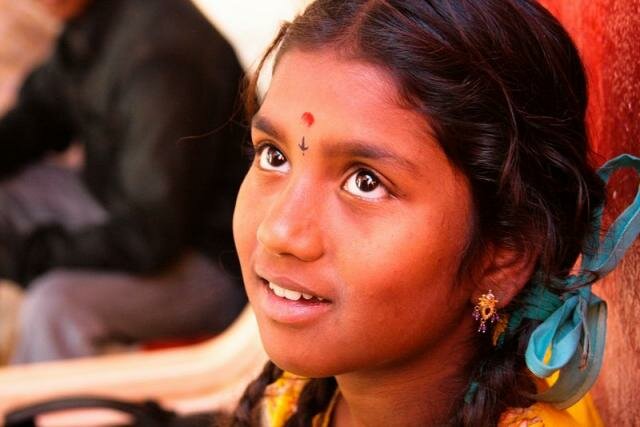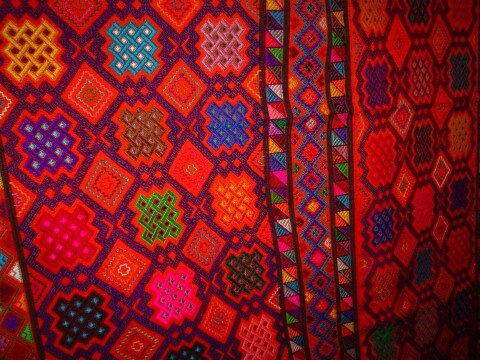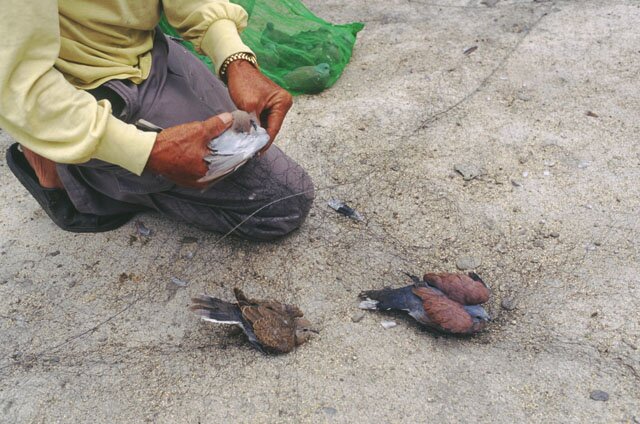BROWSE COUNTRIES/ TERRITORIES
Life, unscripted
Two Americans bring an Iraqi boy maimed and blinded by the war back to the United States for treatment. Filmmaker Abdullah Boushahri tells a side to this true story that questions their good intentions.

There are two types of people in this world: those who shut the door where opportunity presents itself as an unwelcome visitor, and those who cast aside all to meet the stranger at the door.
Director Abdullah Boushahri is one of the latter. He was on a flight back to his native Kuwait, where he had planned to make a new film. He started chatting to two American women sitting next to him and before he knew it, he had discovered a great subject for a documentary. A couple of phone calls later, he was off to meet the subject of his new film, but this decision he made rather quickly, literally with his head in the clouds.
One of the women he met on the plane was Elissa Monsanti, founder of Global Medical Relief. She was going to pick up an Iraqi child with her associate. The child, seven-year-old Ahmad, was blinded and maimed when he got caught in a crossfire while walking home after school. Global Medical Relief was going to take Ahmad back to the US for medical treatment.
From the moment they met, Abdullah began filming the women. He went with them to the Iraqi-Kuwaiti border where they met for the first time, Ahmad, and his brother, Saad. Saad was much older than Ahmad, and was like a father figure to the child. He was going to chaperon Ahmad on the US trip. On the plane, the two brothers teased each other excitedly about going to America, all of which Abdullah captured on film. Also featured was Monsanti haggling with an American journalist on just how the press release about Ahmad should be worded. The journalist wanted an exclusive on this cross-border relief mission, but Monsanti wanted credit from more than one news outlet.
It was when the group reached New York that Monsanti dropped the bombshell on Abdullah. Although she had agreed to let him film Ahmad's entire treatment process, her partner at Global Medical Relief, also a filmmaker, wanted to make the documentary himself. Sorry, but Abdullah had to go. This was after he had given Monsanti a copy of what he had shot so far because she had asked for it, saying she did not have a camera herself.
Monsanti took with her Ahmad, Saad and the footage, and vanished. There Abdullah was at the JFK International Airport, facing a filmmaker's worst nightmare. He had lost Ahmad, his subject. He had lost his film.
Abdullah searched the US, Kuwait and Iraq for Ahmad but to no avail—until 12 months later, when he finally managed to track down Ahmad in Iraq. He learnt then that Ahmad too had lost something in that past year.
Saad.
After the treatment, the brothers went back to Baghdad. There, they met with an accident in which Saad was killed. Ahmad would now be accompanied by his father for his second round of treatment in the US instead.
Reunited with Ahmad, Abdullah again travelled with him to the US. Naturally the Americans were not pleased when he re-emer
ged but this time having snatched his film back from oblivion, Abdullah was not going to let them rid him a second time.
Had calmer heads prevailed, Abdullah would have cut his losses and moved on. Instead he persisted and in the end, faith won out. A film that came to him out of the blue (sky) re-presented itself when most would have given up.
And what resulted is a thought-provoking film on how altruistic missions by charities sometimes exploit the very ones they claim to help.
Here, director Abdullah Boushahri takes us on the improbable of this timely documentary, in his words, from the beginning.
Related Story:
Login or Register
 Dan-Chyi Chua began her writing career with Channel News Asia, a regional cable network, before forsaking broadcast journalism to hit the road for a three-year sabbatical through the Middle East, China, Central America and Cuba. She has now grounded herself as a writer for asia! Magazine.
Dan-Chyi Chua began her writing career with Channel News Asia, a regional cable network, before forsaking broadcast journalism to hit the road for a three-year sabbatical through the Middle East, China, Central America and Cuba. She has now grounded herself as a writer for asia! Magazine.
- Asian Dynasties and History
- Conservation of the Environment
- Definition: Culture
- Economy and Economics
- Food and Recipe
- Geopolitics and Strategic Relations
- Health and Body
- Of Government and Politics
- Religion and Practices
- Social Injustices and Poverty Report
- Society, Class and Division
- Unrest, Conflicts and Wars






























 Another Point
Another Point From Jerusalem to the West Bank
From Jerusalem to the West Bank
Comments
Post new comment